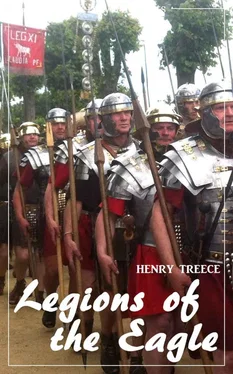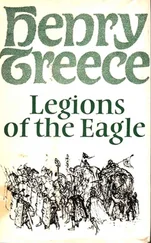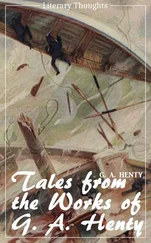Math tried to dissuade him from this point of view, but Gwydion shook him off, almost roughly, and his face was stern.
"If I were to make a sacrifice," he said, "the evil might pass away from our house. But for a hare it must be a sacrifice that causes me great suffering. I must give something to the gods that will cause me sorrow when I part with it."
He looked to the ground and gave a deep sigh. Then, without speaking to Math, he bent and began to stroke the head of Bel, the hound, who all this time had been looking at the two boys with great loving eyes, for they both cared for him and took him hunting almost every day. Then, as though he had made his mind up, Gwydion took Bel by the collar and turned with him towards the wood.
"Come on, Bel, old friend," he said. "I am sorry that it has come to this, but I will try to do it as painlessly as I can. You must lie still and I will be quick."
When they were at the edge of the wood, Math could stand it no longer. He ran after them, "Stop! Stop!" he cried. "I would rather lie under the great stones myself than have Bel killed. Look, Gwydion, there is your fine hunting-knife. It cost more than Bel, and it has such a lovely red garnet-stone set into the hilt. I know you love it dearly, and it will be a great loss to you, but could you not give that to the gods, and spare Bel?"
A smile spread over Gwydion's face. "Oh Math," he said, "what a fool I was not to have thought of that before! Of course, it shall be the knife. I shall miss it terribly, and no doubt father will beat me for losing it, but we shall have Bel, shan't we!"
He loosed the dog, which ran to Math and jumped up at his chest in fun, almost as though he knew that the slave had saved him. Then Gwydion drew the bright knife, and swinging it out as far as his arm would go, he flung it in a glittering arc over the topmost boughs of the wood. They saw it glint in the last rays of the sun, and then they heard it strike a mass of foliage and tinkle down, somewhere distant, out of sight.
"Good luck go with you and come back to us," said Gwydion, making the usual remark of Celtic boys who sacrificed a treasured belonging.
The boys looked at each other, and seemed to sigh with relief. Then they brightened up, and Gwydion even said, "Well, the old gods shouldn't take it amiss, after all. One hare in exchange for a lovely bow and a better knife than the Roman Emperor carries, I'll bet!"
Math frowned a little, for he knew that one should not make slighting remarks concerning the gods. Then they linked arms and almost ran together towards the house on the hill, for they were hungry.
They skirted the terraced fields, which were set up the hillside and which carried a good yield of grain, knee-high russet corn-ears and oats; and they passed the outbuildings of the farm, where the plough and harrows were stored, and the chariot house, where Gwydion's father kept the great war-chariot that had been in the family since the time the Romans first came, led by Julius Caesar—or "The Hairy One," as the Belgae used to call him, as they laughed about their fires at night.
And so on, until they came to the farm-house itself; a long, single-storeyed thatched building, with the stables at one end, and the sleeping-quarters at the other.
As they paused at the door to unlink their arms, for it was not considered correct for a freeman, like Gwydion, to behave in such a friendly manner towards a slave, Gwydion said, "Math, we mustn't say a word about this to anyone. If father wants to know where my knife is, I shall say it is lost. That is not a lie, is it? After all, it is lost! I shall never find it again!"
Math said, "Your parents have always been as kind as my own father and mother were, when they were alive. I do not like to deceive them."
Gwydion said, "Well, am I not kind to you as well! After all, you killed the hare, not me!"
"Very well," said Math, his face darkening again as he recalled what he had done. "I will not say anything."
"No, not even if father beats me for losing it," stressed Gwydion; and the two boys went into the great hall and sat down at the long oaken table and began to beat on the wood with their knives and bowls, as though indicating to the servants that they were extremely hungry and must be served without delay. But the two old waiting-women did not hurry when they heard this clatter, for the boys always did this, whether they were really hungry or not. So this day of all days they were made to wait as long as ever, while the oat-cakes were heated and the fresh milk skimmed for them.
CHAPTER 2 – SHALL IT BE WAR?
Gwydion's fears were unfounded. His father came back to the farm later than usual, and accompanied by a dirt-caked tribesman whose long riding cloak hung about him in tatters and whose iron armour showed signs of neglect in the rust that had begun to eat into it at the edges of the embossed breast-plate. Gwydion heard them coming and looked through the small window-hole, then drew back excitedly.
"Father is with a man of the Cantii, Math," he said. "One of the iron-working folk from the south. They look very serious indeed. There must be trouble somewhere."
Math said, "Do you think it's the Romans again?" His voice was almost disinterested, as though he had heard of trouble from the Romans many times, without it ever happening; and also as though the Romans were not his enemies, but the enemies of the Belgae.
Gwydion said, "If the Romans have landed, the Cantii would know as soon as anyone in Britain, and they would send to Caratacus for help."
"Only if they were being defeated," said Math, with a wry smile on his dark face. "The Cantii are too proud to ask for help unless they are being beaten in battle. They wish for all the glory. They would not want to share their victory with any other tribe. This man comes with news of defeat, you mark my words, Gwydion."
Gwydion was a little angry and said sharply, "We Belgae, we folk from Belgica, whatever our tribal names now, must stick together. If we do that, we shall defeat any foe, either Roman or German. You are a Silurian from the West; you do not know our great family power."
Math's dark eyes seemed to smile, as though he knew a great deal but did not wish to say what he knew. At last he said, half to himself, "We, the Silures, have been in Britain for many many years. We had been here for countless winters before the Belgae had even heard of Britain. We are an old people and know many things. And one thing we know is that Rome is powerful and cannot be defeated by a group of tribes who are each too proud to join together, unless they are facing defeat."
Gwydion looked at him sternly. "Did not our great ancestor Cassiveleaunus turn away Julius the Caesar?" he said with pride.
Math grinned and said, "Julius came the first time merely to see what Britain was like. And the second time he simply wished to show what power Rome had, nothing more. Had he wished to stay here and conquer, he might have done so. But he had other, more important battles to fight in Gaul."
Gwydion jumped from his bench and raised his hand as though he would strike the slave; but before he could do so, his mother came bustling in, and swept them out of the hall.
"Boys, boys," she said, "away with you! Play outside, for your father has important things to discuss with a visitor from far afield."
Gwydion's mother was a kindly woman who made no distinction between the two boys, for she loved children whether they were slaves or not, and came from the peasant community of the Atrebates in the wooded middle of the country. She was a strongly made woman, fair-haired, and dressed in a serviceable woollen dress, with an apron and sleeves rolled back, for she liked to help her dairymaid, and to keep an eye on what went on in the big cool kitchen at the back of the house. The boys loved her and respected her at the same time, for, as they both knew, she was usually too busy to tell a lad twice to do things! The second command was often accompanied by a good sound smack. They had both felt the force of this argument, and so when she came into the hall, they stopped bickering and went by the back door outside into the broad, palisaded yard.
Читать дальше












